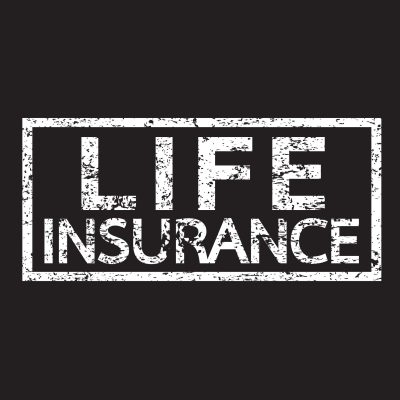If you are a first responder, every shift, every moment on the job can be risky. Being prepared for the worst, your death, is the best way to protect your family. A quality life insurance policy can protect your family and help them maintain the same lifestyle you are living today in the event of your death. But with so many options out there you must evaluate what is best for you and your family’s situation. Here are common life insurance policies to consider and there key differences.
Term Life Insurance
Term life insurance is just that. Insurance that is for a specified “term” or length of time. Term life insurance typically comes in terms of 10, 15, 20, 25, 30, 35, or 40 year terms. Here are some key features of term insurance:
- The premiums are locked in for the life of the term. They can not go up during the term. You pay the premium throughout the duration of the term.
- At death the policy pays out the face value of the policy. If it is a $500k face value then your spouse gets a check for $500k.
- At death, the face value is paid out tax free as long as you are paying your premiums with after tax (your take home pay) dollars.
This is essentially pure life insurance. In other words, it only protects against your death. Because of this, it is the least expensive form of life insurance you can buy. Premiums are not recoverable so at the end of the term you don’t get any of your money back, and there is no built in savings account. But don’t let that scare you. It makes up for it by being the least expensive form of insurance, oftentimes giving you extra money in your pocket over the more costly permanent insurance policies discussed below.
Permanent (sometimes called Cash) Value Insurance
Another type of life insurance is permanent, or cash value life insurance. These types of policies are designed to have a life insurance component (an amount paid to your beneficiary if you die) as well as a savings component that builds up cash value over time. They earn interest depending on the structure of the product that can range from fixed amounts, to investments in the stock market. Common names for this type of policy include:
- Whole Life Insurance
- Universal Life Insurance
- Variable Life Insurance and sometimes a combination of all or some of these names
How Does Permanent Value Insurance Work?
Part of your monthly premium payment goes towards the death benefit within the policy and the other part goes into a savings account that earns interest. The interest rates vary based on the policy, but here are some of the average interest percentages:
- Whole life typically earns between 1% – 3.5% (1)
- Universal rates are set by the insurer and may change, sometimes frequently; oftentimes with a cap rate!
- Variable interest rates are tied to the underlying stocks they are in but usually come with a cap rate as well.
So what is a cap rate? It is a rate the insurer says you can’t go over. For instance if your cap rate is 6% and the underlying funds/investments did 12% that year guess what you get? Yup – only the 6%!!
Permanent/cash value policies can be very expensive because you are paying for a life insurance and a savings mechanism. As your cash savings grows you can take out loans against your savings, but this can reduce your death benefit if you die while the loan is outstanding and oftentimes can have other rules, and restrictions with them.
These policies are more expensive than a straight level term policy when comparing the same face values. If you do die, your beneficiary gets the death benefit, but the cash portion can be kept by the insurance company depending on the contract rules, or if you purchase expensive riders to ensure your beneficiary gets both. There can be a lot of rules within these policies, which is why the contracts can be as long as a small novel!
Group Term Life Insurance Through Your Workplace
If you are employed then you usually have access to a group term life insurance policy. Some police/fire departments also give their employees 1x, 2x, or 3x your annual salary in life insurance for free as an employee benefit. You may also have the option to purchase additional life insurance on top of this. So let’s look at group term life insurance.
In a group policy you are “grouping” all of the employees together to determine the risk and participating in the policy as a group. This means as you get older you provide more risk to the group, so as you age, your premiums usually go up. That’s why when you sign up for annual enrollment you see the tables of how much insurance is based on your age. As long as you stay employed you can keep paying for the policy, but if you leave your employer, that group term policy oftentimes only stays in effect for 31 days after you leave. You usually get the opportunity keep the coverage if you “convert” the policy to a whole life policy. But remember, cash value insurance can be very expensive compared to its equal term counterpart so get ready for some potential sticker shock!!
So What Type of Insurance is Right For You
We recommend the Term life insurance hands down. Why? Well for starters it is the least expensive by far. For example, below are example of real quotes for a healthy 30-year-old male for $500k in 2025 (women usually pay less because you live longer than men, you generally have less health issues, and you don’t do as many stupid things as men do – que up the meme videos on that one if you need examples men).
Term Life Insurance Preferred Best Quotes:
- 20 year term = $18 monthly
- 30 year term = $28 monthly
Whole Life Insurance:
- $460 monthly
As you can see, the whole life policy is significantly more expensive than term life insurance in this example. Insurance agents are compensated based on the premium costs, so the higher the premium you pay the higher the commissions they make which may be why they are pushing that higher cost cash value policy to get the higher commissions as well.
Common selling points we see used to promote cash value policies include:
- Why would you buy a term policy and give all your money to an insurance company with nothing to show for it at the end? My answer would be because I want to save a crap ton of money over that costly whole life policy!!
- A cash value policy is an investment that you can use to save for retirement. The answer to this one is that while yes it is an investment, They cap the rate you can make if the investments do well in a year. Again yuck!!
What we see happen all too often is someone gets sold on one of these cash value policies, but they can’t afford the high monthly cost, so they end up buying a much smaller policy to get their monthly payments down to a more affordable payment. By doing this you are potentially putting your family in a difficult predicament should you die. As an example, let’s say $100 a month buys $100k worth of whole life insurance. Would that $100k death benefit even be enough to pay off the house? Maybe, but potentially not, so you have just put your surviving spouse into a situation where they no longer have your paycheck coming in, but the monthly expenses are still the same, and other new expenses maybe even higher.. Think about potential additions to the budget like child care. This can be a very bad situation to be in.
Know one thing about all of this. You can’t always predict what your future financial, and family, needs may be so always consult with a licensed life insurance agent to fully understand what your life insurance needs may be. Want to learn more about your specific situation, or have a full evaluation of your current life insurance? Click on the link below to schedule your complimentary life insurance evaluation.

Nick Daugherty
President / CEO FinancialCop
(1) https://www.nerdwallet.com/article/insurance/whole-life-insurance#:~:text=The%20cash%20value%20in%20a,to%20Quotacy%2C%20a%20brokerage%20firm.
The information given herein is taken from sources that FinancialCop, and it advisors believe to be reliable, but it is not guaranteed by us as to accuracy or completeness. This is for informational purposes only and in no event should be construed as an offer to sell or solicitation of an offer to buy any securities or products. Please consult your tax and/or legal advisor before implementing any tax and/or legal related strategies mentioned in this publication as FinancialCop does not provide tax and/or legal advice. Opinions expressed are subject to change without notice and do not take into account the particular investment objectives, financial situation, or needs of individual investors. Advisory Services offered through Retirement Plan Advisors LLC, a Federally Registered Investment Adviser. RPA and FinancialCop LLC are not affiliated.

